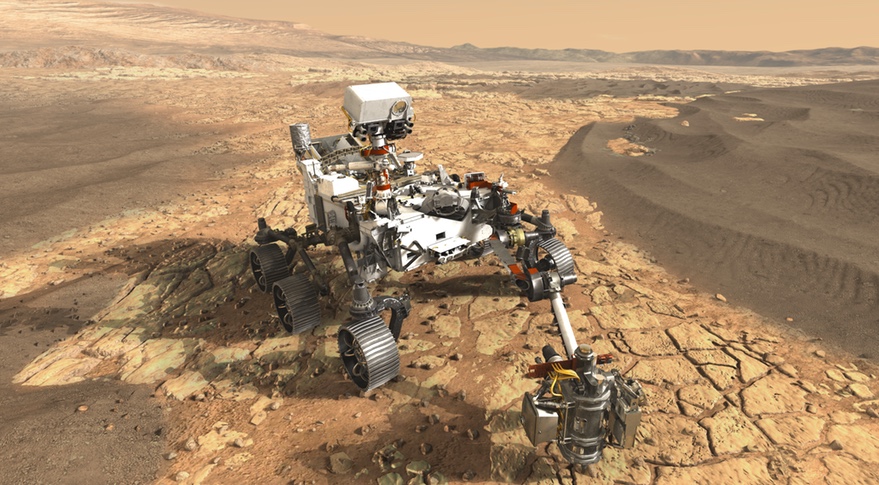
Your name could take flight to Mars next year.
NASA is inviting people around the world to submit their names to fly aboard the life-hunting Mars 2020 rover, which is scheduled to launch next summer and touch down on the Red Planet in February 2021.
"As we get ready to launch this historic Mars mission, we want everyone to share in this journey of exploration," Thomas Zurbuchen, associate administrator for NASA's Science Mission Directorate in Washington, D.C., said in a statement Tuesday (May 21). "It's an exciting time for NASA, as we embark on this voyage to answer profound questions about our neighboring planet and even the origins of life itself."
Getting your name (way) out there is easy; just fill out the short form here by Sept. 30. You'll get a Mars "boarding pass" for your minimal trouble.
Related: NASA's Mars Rover 2020 Mission in Pictures (Gallery)
Mission team members at NASA's Jet Propulsion Laboratory in Pasadena, California, will use an electron beam to etch submitted names onto a microchip, in lines of text that are less than 0.1% as wide as a human hair. About 1 million names can be squeezed onto a single chip, NASA officials said.
More than one microchip may be needed to handle the demand. NASA organized a similar engagement campaign for the agency's Mars InSight lander, which touched down on the Red Planet in November 2018, and more than 2 million people submitted their monikers.
Get the Space.com Newsletter
Breaking space news, the latest updates on rocket launches, skywatching events and more!
Mars 2020 will touch down inside the 28-mile-wide (45 kilometers) Jezero Crater, which harbored a river delta in the ancient past. The six-wheeled robot will hunt for signs of long-dead life, characterize the area's geology, search for buried water-ice and do a variety of other work. For example, Mars 2020 will test a device designed to generate oxygen from the Red Planet's thin, carbon-dioxide-dominated atmosphere. That technology, once scaled up, could help humanity establish a Martian outpost.
Mars 2020 will also collect and cache samples for future return to Earth, though NASA is not yet developing a mission that will bring this material home.
And speaking of names, Mars 2020 will get a new one soon. NASA plans to hold a student naming competition, as the agency has done with Red Planet rovers in the past. For example, then-sixth-grader Clara Ma submitted the moniker "Curiosity" for Mars 2020's predecessor, which has been exploring the Red Planet's Gale Crater since 2012.
- Mars 2020: The Red Planet's Next Rover
- Amazing Mars Photos by NASA's Curiosity Rover
- Photos: Ancient Mars Lake Could Have Supported Life
Mike Wall's book about the search for alien life, "Out There" (Grand Central Publishing, 2018; illustrated by Karl Tate), is out now. Follow him on Twitter @michaeldwall. Follow us on Twitter @Spacedotcom or Facebook.
Join our Space Forums to keep talking space on the latest missions, night sky and more! And if you have a news tip, correction or comment, let us know at: community@space.com.

Michael Wall is a Senior Space Writer with Space.com and joined the team in 2010. He primarily covers exoplanets, spaceflight and military space, but has been known to dabble in the space art beat. His book about the search for alien life, "Out There," was published on Nov. 13, 2018. Before becoming a science writer, Michael worked as a herpetologist and wildlife biologist. He has a Ph.D. in evolutionary biology from the University of Sydney, Australia, a bachelor's degree from the University of Arizona, and a graduate certificate in science writing from the University of California, Santa Cruz. To find out what his latest project is, you can follow Michael on Twitter.









